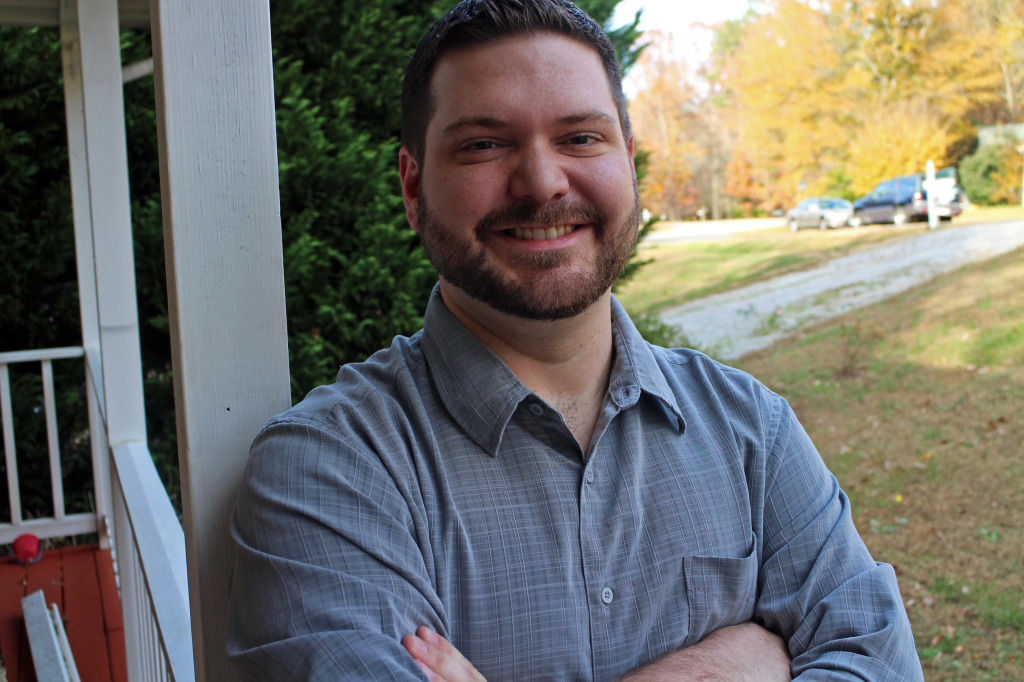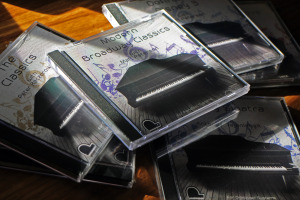The player piano’s popularity reached its peak before the Great Depression, but that isn’t stopping a University of Richmond graduate from taking a gamble on the self-playing ivory keys.
William Miller has launched Player Piano Premier, a local startup that produces and sells music for player pianos.
Player pianos play themselves according to instructions received either from a paper scroll in older models or from mp3s or CDs in contemporary times.
“It’s for people that love that pure piano sound,” Miller said. “There’s the wow factor of the piano playing itself over in the corner. It’s a conversation piece.”
Since launching in September, Miller has produced and sold about 100 discs for player pianos. He said the instrument’s appeal in the age of YouTube and Spotify is that it’s like having a live pianist in your home – the sound quality is hard to beat.
It’s also an option if an expensive piano is collecting dust in the living room.
“A lot of people spend money on acoustic pianos and find no one plays it,” Miller said. “They still want to get use out of it, so they’ll retrofit it to have a player piano system.”
Miller, 30, invested about $9,000 for equipment, software and the licensing fees necessary to produce the first nine albums for Player Piano Premier. His catalog includes music by Frank Sinatra, The Beatles, Disney collections and Broadway hits. A Christmas album is the works.
“It’s a lot more than finding the music you like and punching a button to get it on a disc,” Miller said.
When Miller finds a song he wants to master for the player piano, he lines up a pianist to play the song. The pianist’s performance is transcribed onto the disc or music file as notes for the player piano. Miller said just using the original sheet music produces mechanical versions of songs that lack the flair and embellishments of the artists he contracts with.
“It’s an actual live performance,” Miller said.
Miller said he pays a flat rate to a company called Limelight to license each song he uses. Limelight keeps records of Miller’s purchased licenses and handles all royalty payments to publishers and songwriters.
The specialized player piano discs don’t play on normal CD players. Miller said his discs cost $20 to $30 dollars for about 40 to 60 minutes of music. And some player pianos take their cues from another disappearing technology.
“Believe it or not, I still sell floppy discs occasionally to people,” Miller said.
After graduating from law school, Miller worked at a now closed Jordan Kitts Piano location in Midlothian. It was while selling pianos that he first saw the demand for more affordable options for player piano music.
“A lot of customers would mention how costly it was,” Miller said. “They showed displeasure at the lack of options.”
Miller’s new business is also an outgrowth of his studies. He studied music business at Radford and has a law degree from UR. He passed the Virginia state bar exam in 2012 and said his concentration in intellectual property law has proved useful in navigating the licensing waters of the music industry.
“I write up all my own contracts,” he said.
To support himself and his family as his piano business gets off the ground, Miller still does freelance research and editing for his former UR professors. He also works as a facility supervisor in Chesterfield County gyms.
“Hopefully this will be the only thing,” Miller said of his new business. “For the moment, you gotta do what you gotta do.”
The player piano’s popularity reached its peak before the Great Depression, but that isn’t stopping a University of Richmond graduate from taking a gamble on the self-playing ivory keys.
William Miller has launched Player Piano Premier, a local startup that produces and sells music for player pianos.
Player pianos play themselves according to instructions received either from a paper scroll in older models or from mp3s or CDs in contemporary times.
“It’s for people that love that pure piano sound,” Miller said. “There’s the wow factor of the piano playing itself over in the corner. It’s a conversation piece.”
Since launching in September, Miller has produced and sold about 100 discs for player pianos. He said the instrument’s appeal in the age of YouTube and Spotify is that it’s like having a live pianist in your home – the sound quality is hard to beat.
It’s also an option if an expensive piano is collecting dust in the living room.
“A lot of people spend money on acoustic pianos and find no one plays it,” Miller said. “They still want to get use out of it, so they’ll retrofit it to have a player piano system.”
Miller, 30, invested about $9,000 for equipment, software and the licensing fees necessary to produce the first nine albums for Player Piano Premier. His catalog includes music by Frank Sinatra, The Beatles, Disney collections and Broadway hits. A Christmas album is the works.
“It’s a lot more than finding the music you like and punching a button to get it on a disc,” Miller said.
When Miller finds a song he wants to master for the player piano, he lines up a pianist to play the song. The pianist’s performance is transcribed onto the disc or music file as notes for the player piano. Miller said just using the original sheet music produces mechanical versions of songs that lack the flair and embellishments of the artists he contracts with.
“It’s an actual live performance,” Miller said.
Miller said he pays a flat rate to a company called Limelight to license each song he uses. Limelight keeps records of Miller’s purchased licenses and handles all royalty payments to publishers and songwriters.
The specialized player piano discs don’t play on normal CD players. Miller said his discs cost $20 to $30 dollars for about 40 to 60 minutes of music. And some player pianos take their cues from another disappearing technology.
“Believe it or not, I still sell floppy discs occasionally to people,” Miller said.
After graduating from law school, Miller worked at a now closed Jordan Kitts Piano location in Midlothian. It was while selling pianos that he first saw the demand for more affordable options for player piano music.
“A lot of customers would mention how costly it was,” Miller said. “They showed displeasure at the lack of options.”
Miller’s new business is also an outgrowth of his studies. He studied music business at Radford and has a law degree from UR. He passed the Virginia state bar exam in 2012 and said his concentration in intellectual property law has proved useful in navigating the licensing waters of the music industry.
“I write up all my own contracts,” he said.
To support himself and his family as his piano business gets off the ground, Miller still does freelance research and editing for his former UR professors. He also works as a facility supervisor in Chesterfield County gyms.
“Hopefully this will be the only thing,” Miller said of his new business. “For the moment, you gotta do what you gotta do.”





Thank you for the great article.
I just wanted to add that our website is http://www.playerpianopremier.com for anyone trying to find us online.